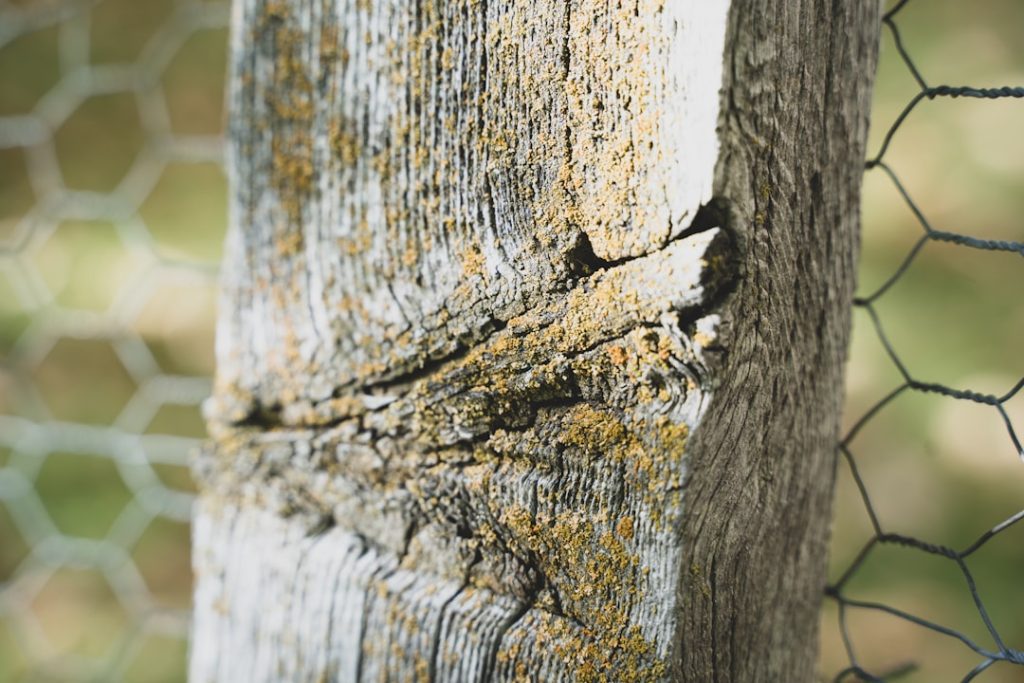When chickens from a neighboring property enter a garden, they can cause significant damage. These birds may scratch and disturb the soil, consume plants, and deposit feces, which can negatively affect soil quality and plant health. The impact extends beyond aesthetics, potentially disrupting the garden’s ecosystem.
Chickens can also produce noise and odors that may interfere with the enjoyment of outdoor spaces. The presence of chickens in a garden can attract additional pests and predators, which may cause further damage to plants and pose risks to local wildlife. This can lead to a cascade of ecological effects that extend beyond the immediate garden area.
Understanding the full scope of these impacts is essential when addressing the issue with neighbors and seeking appropriate solutions.
Table of Contents
- 1 Establishing Boundaries: Communicating with Your Neighbor about the Issue
- 2 Implementing Physical Barriers: Installing Fences or Chicken Wire to Protect Your Garden
- 3 Utilizing Natural Deterrents: Planting Certain Vegetation to Repel Chickens
- 4 Creating Distractions: Providing Alternative Areas for Chickens to Roam and Forage
- 5 Seeking Legal Recourse: Exploring Local Ordinances and Regulations Regarding Livestock
- 6 Building Community: Finding a Resolution through Collaboration and Compromise with Your Neighbor
- 7 FAQs
- 7.1 What are some effective ways to keep my neighbor’s chickens out of my garden?
- 7.2 Is it legal for my neighbor’s chickens to roam into my garden?
- 7.3 How can I approach my neighbor about their chickens entering my garden?
- 7.4 Are there any natural deterrents that can keep chickens out of my garden?
- 7.5 What are some benefits of having chickens in the neighborhood?
Key Takeaways
- Neighbor’s chickens can have a significant impact on your garden, including damage to plants and soil
- Communicate openly and respectfully with your neighbor about the issue to establish boundaries and find a solution
- Install fences or chicken wire to physically protect your garden from the chickens
- Plant vegetation like marigolds or lavender to naturally repel chickens from your garden
- Provide alternative areas for the chickens to roam and forage to distract them from your garden
Establishing Boundaries: Communicating with Your Neighbor about the Issue
Approaching the Conversation
Once you’ve identified the impact of your neighbor’s chickens on your garden, it’s essential to establish open and respectful communication with your neighbor about the issue. Approach the conversation with a calm and understanding demeanor, expressing your concerns about the damage to your garden and the disruption caused by the chickens. It’s crucial to listen to your neighbor’s perspective as well, as they may not be aware of the extent of the impact their chickens are having on your property.
Focusing on a Mutually Beneficial Solution
When communicating with your neighbor, it’s vital to focus on finding a mutually beneficial solution rather than placing blame or creating conflict. You can suggest potential solutions such as installing physical barriers or planting natural deterrents to protect your garden while still allowing the chickens to roam freely.
Establishing Boundaries and Finding a Resolution
By approaching the issue with empathy and a willingness to collaborate, you can establish boundaries with your neighbor and work towards finding a resolution that respects both parties’ needs and concerns.
Implementing Physical Barriers: Installing Fences or Chicken Wire to Protect Your Garden

One effective way to protect your garden from your neighbor’s chickens is by installing physical barriers such as fences or chicken wire. This can help create a clear boundary between your property and your neighbor’s, preventing the chickens from accessing your garden and causing damage. When installing fences or chicken wire, it’s important to ensure that they are tall enough and securely anchored to the ground to prevent the chickens from flying over or digging under them.
In addition to protecting your garden, installing physical barriers can also provide a sense of privacy and security for both you and your neighbor. It can help establish clear boundaries and reduce potential conflicts over property lines and shared spaces. When implementing physical barriers, it’s important to communicate with your neighbor and ensure that the installation does not infringe on their property or cause any inconvenience.
By working together to install physical barriers, you can effectively protect your garden while maintaining a positive relationship with your neighbor.
Utilizing Natural Deterrents: Planting Certain Vegetation to Repel Chickens
Another approach to protecting your garden from your neighbor’s chickens is by planting certain vegetation that can act as natural deterrents. Chickens are known to avoid certain plants and herbs such as marigolds, lavender, and rosemary, which can be strategically planted around the perimeter of your garden to discourage the chickens from entering. These plants not only serve as natural deterrents but also add beauty and fragrance to your garden, enhancing its overall appeal.
In addition to planting specific vegetation, you can also consider incorporating other natural elements such as mulch, gravel, or decorative rocks to create barriers that deter chickens from accessing your garden. These natural deterrents can help protect your plants while maintaining a harmonious and eco-friendly environment in your backyard. By utilizing natural deterrents, you can effectively discourage your neighbor’s chickens from causing damage to your garden while promoting a sustainable and natural approach to gardening.
Creating Distractions: Providing Alternative Areas for Chickens to Roam and Forage
To address the issue of your neighbor’s chickens damaging your garden, you can also consider providing alternative areas for the chickens to roam and forage. This can include creating designated spaces in your yard where the chickens can access food, water, and shelter without encroaching on your garden. By providing alternative areas for the chickens to roam and forage, you can redirect their attention away from your garden and minimize the impact they have on your plants.
In addition to creating alternative areas for the chickens, you can also consider providing enrichment activities such as hanging treats or setting up chicken-friendly obstacles for them to explore. This can help keep the chickens engaged and entertained, reducing their interest in venturing into your garden. By creating distractions and alternative spaces for the chickens, you can effectively mitigate the impact they have on your garden while promoting their well-being and natural behaviors.
Seeking Legal Recourse: Exploring Local Ordinances and Regulations Regarding Livestock

Understanding Local Ordinances and Regulations
Start by researching local laws and regulations regarding livestock in your area. This will help you understand your rights and protections as a property owner. You’ll want to find out if there are any specific laws or regulations that prohibit or restrict keeping chickens in residential areas, or if there are any provisions that address property damage caused by livestock.
If you find that local laws support your position, you can reach out to local authorities or legal professionals for guidance on how to proceed with addressing the issue with your neighbor. It’s essential to approach this process with a clear understanding of your rights and responsibilities.
Finding a Resolution that Complies with Local Regulations
Remember to engage in constructive dialogue with your neighbor to find a resolution that complies with local regulations. By doing so, you can work together to find a solution that respects both your rights as a property owner and your neighbor’s right to keep chickens.
Building Community: Finding a Resolution through Collaboration and Compromise with Your Neighbor
Ultimately, finding a resolution to the issue of your neighbor’s chickens damaging your garden may require building community through collaboration and compromise. Engage with other neighbors who may be affected by similar issues or who have successfully resolved similar conflicts with their own neighbors. By building a sense of community, you can gain support and perspective from others who understand the challenges of navigating relationships with neighbors while protecting personal property.
Collaborate with your neighbor to find a compromise that addresses both parties’ needs and concerns. This may involve revisiting previous solutions such as installing physical barriers or providing alternative areas for the chickens while also considering additional measures such as adjusting feeding schedules or coop placement to minimize the impact on your garden. By working together with an open mind and a willingness to find common ground, you can build a stronger community while finding a resolution that respects everyone involved.
In conclusion, addressing the issue of your neighbor’s chickens damaging your garden requires a multi-faceted approach that involves understanding the impact of the chickens, establishing boundaries through communication, implementing practical solutions such as physical barriers and natural deterrents, exploring legal recourse if necessary, and building community through collaboration and compromise. By approaching the issue with empathy, respect, and a commitment to finding mutually beneficial solutions, you can protect your garden while maintaining positive relationships with your neighbors.
If you’re struggling with keeping your neighbor’s chickens out of your garden, you may want to consider building a proper coop for them. Poultry Wizard has a helpful article on what kind of coop is best for chickens that can provide some insight on how to keep the chickens contained and away from your garden. Building a farmhouse chicken coop could be a great solution to prevent the chickens from wandering into your garden and causing damage to your plants.
FAQs
What are some effective ways to keep my neighbor’s chickens out of my garden?
Some effective ways to keep your neighbor’s chickens out of your garden include installing a fence around your garden, using chicken wire or hardware cloth to cover your plants, and using natural deterrents such as citrus peels or cayenne pepper.
Is it legal for my neighbor’s chickens to roam into my garden?
Laws regarding chickens roaming onto neighboring properties vary by location. It’s important to check with your local municipality or homeowners association to understand the regulations in your area.
How can I approach my neighbor about their chickens entering my garden?
When approaching your neighbor about their chickens entering your garden, it’s best to do so in a polite and respectful manner. Express your concerns and work together to find a solution that works for both parties.
Are there any natural deterrents that can keep chickens out of my garden?
Yes, there are natural deterrents that can help keep chickens out of your garden. Some examples include using citrus peels, cayenne pepper, or planting certain herbs and flowers that chickens tend to avoid.
What are some benefits of having chickens in the neighborhood?
Having chickens in the neighborhood can provide benefits such as fresh eggs, natural pest control, and fertilizer for gardens. Additionally, chickens can be enjoyable to watch and can contribute to a sense of community.
Meet Walter, the feathered-friend fanatic of Florida! Nestled in the sunshine state, Walter struts through life with his feathered companions, clucking his way to happiness. With a coop that’s fancier than a five-star hotel, he’s the Don Juan of the chicken world. When he’s not teaching his hens to do the cha-cha, you’ll find him in a heated debate with his prized rooster, Sir Clucks-a-Lot. Walter’s poultry passion is no yolk; he’s the sunny-side-up guy you never knew you needed in your flock of friends!







